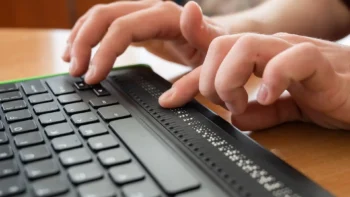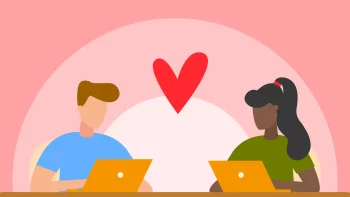How Recreation Programming Can Support Mental Health
Four ideas for how you might positively impact your community’s mental health using your parks and rec offerings.
Support in Trying Times and Beyond
Citizens across the country found themselves thrown into the midst of a pandemic that impacted them in a whole host of negative physical, mental, and emotional ways. People found themselves more isolated than ever as they were cut off from major sources of support they may typically have from friends, family, and community. Many previously available resources have been limited or put on hold entirely, and certain programs became impossible to implement due to necessary health restrictions. These circumstances created an environment in which it’s difficult to find ways to combat those factors contributing to a diminished state of general wellbeing.
Mental health has been a topic that has deserved more attention and focus for a long time, and that has never been more apparent than now. People are searching for outlets to help them cope with the stressors, fears, and anxieties of this tough time. It’s important to note that these issues have been dealt with across society long before COVID-19, with many people experiencing everyday struggles with mental health, even in normal circumstances. Now, even more, people need support and assistance, and innovative approaches and modifications to existing recreation programming can be a difference-maker for your community in the present, coming out of the pandemic, as well as in the future, when a sense of normalcy returns.
Read on to explore some ideas for how you might positively impact your community’s mental health.
Find Local Program Partners
Reach out to your local mental health experts, mental health providers, community groups, and faith-based organizations and work with them to develop and implement action plans for your park-goers. Develop programs that assist adults and youth and create and provide learning materials to bring awareness to an issue many people may be experiencing and not even know it. Utilize these partnerships to help hold beneficial educational events, host mental health first aid classes, and create new programming that directly focuses on both body and mind, programming such as:
- Mediation sessions
- Breathing practices
- Yoga classes
- Healthy lifestyle classes
- Cooking skills classes
- Reading groups
- Arts courses
For programming ideas and partner opportunities, visit our resources page and view our parks and rec lunch and learn series highlighting virtual recreation program innovators.
Expand Your Reach
Make sure you are reaching as many people as possible. Remember, not everyone has the same access to resources, transportation, or technology. Take into consideration all neighborhoods, audiences, and age groups to ensure no one is missed or overlooked by your efforts. Meet the people where they are with your knowledge, support, and services. Reach out to senior centers and afterschool programs. Distribute promotional materials in local businesses and around the community and utilize all your digital communication tools like social media and your city or town’s website to spread the word.
Individual activities also need to meet the needs of as wide an audience as possible. Children may benefit from activities that are more oriented toward fun like social gaming, Esports, or art classes, whereas adults may want to focus more on developing healthy habits through self-help activities and exercise. Being adaptive and flexible will be more effective than a one-size-fits-all approach.
Virtual Options
Look outside the box for non-traditional offerings with your programming and opportunities—virtual options have proved to be a necessity during the pandemic. Consider how you can expand online offerings and even build on them once restrictions are lifted. Adults have been working on virtual conference calls, and kids have been attending school online. It may have been challenging at first, but people adapted and made the most of the situation and proved that these mediums could be positive and productive places to accomplish important goals and make positive progress. For every program that has traditionally been in-person, consider how it would look and function in a virtual setting. For programs that were typically in close-quarters or indoors, consider how they might function in an outdoor park where people can remain socially distanced.
As an example of a successful program reimagined from a virtual perspective, learn how former collegiate athlete, competitive skydiver, author, and inspirational speaker Sydney Williams is helping those living with diabetes take control of their health with her #TakeAHikeDiabetes campaign and virtual diabetes management programs.
Community Effort
Mental health needs to be addressed by an entire community. The more partnerships you can build and the more people you can get involved, the more effective your approach will be. No one should have to tackle mental health on their own, but often that has been the case. Being mindful of the many factors that contribute to a person’s ability to engage and participate will help you reach a wider audience. Try and identify where gaps in programming exist and develop innovative solutions to maximize your opportunity to engage your community and help people build and maintain a healthy mental state.
More Solutions for Municipal Recreation Planning and Management
Discover even more ways to improve recreation and add benefits to your community.


